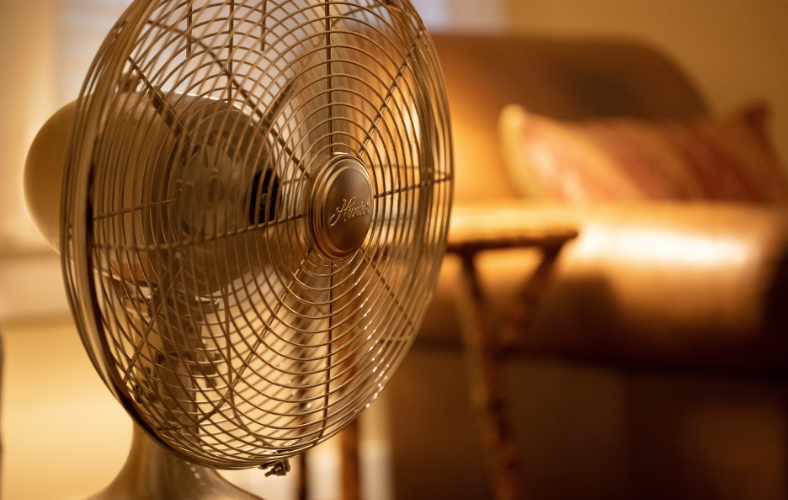The weather can be a tricky thing. Sometimes, it's not just about rain or sunshine. Another major player in the weather game is humidity. But does this moisture-filled air cause headaches? Let's dive in.
What is Humidity?

Humidity is a fundamental factor shaping how we perceive and interact with our environment. It has the ability to influence everything from the state of our hair to the ease with which we breathe. But what exactly is this pervasive phenomenon?
What Exactly is Humidity?
When we talk about humidity, we're referring to the presence of water in the air. Yet, it's crucial to note that this isn't water in its liquid state. Instead, it's in the form of water vapor – an invisible gaseous manifestation of water. A straightforward way to visualize this transformation is by boiling water. As you watch the steam ascend from the pot, you're witnessing water transitioning into its gaseous phase.
Relative Humidity: More Than Just Numbers
Often, we come across the term “Relative Humidity” or “RH” during weather forecasts. So, what does this term convey? Essentially, Relative Humidity denotes the proportion of moisture present in the air compared to the maximum it could hold at that specific temperature. It's intrinsically tied to temperature since warmer air possesses the capacity to retain more water vapor, while cooler air has a restricted moisture-holding ability. This relationship explains phenomena like condensation on a chilled beverage on a warm day: the cool surface diminishes the surrounding air's moisture-retaining ability, leading to visible condensation.
To conceptualize this, envision a suitcase. If it's half-packed, it's operating at 50% of its total capacity. When filled to the brim, it reaches 100%. Similarly, the atmosphere around us has a limit to the amount of moisture it can accommodate.
Feeling the Effects of Humidity
Ever walked outside on certain days and felt like you've stepped into a sauna? Or other times, felt your skin itching from dryness?
- High humidity: This is when the air is holding a significant amount of its moisture capacity. You might feel warmer than the actual temperature because our sweat – our body's cooling mechanism – doesn't evaporate as quickly. The world feels sticky, and sometimes, it might feel harder to breathe.
- Low humidity: The air feels dry. You might notice your lips chapping, skin itching, or even your throat feeling parched. This is because the dry air is pulling moisture from wherever it can, including our skin and respiratory system.
The Humidity-Headache Connection
It's not just a myth. Humidity can indeed influence headaches. But how? And why?
Changes in Air Pressure
When the humidity rises, air pressure changes. Our bodies, sensitive things they are, can feel these shifts. Especially our sinuses. That's why:
- Some people experience sinus pressure.
- This pressure may lead to headaches.
It's like when you're on an airplane. Ever felt that ear popping? It's due to pressure changes too.
Dehydration
Humidity can be sneaky. When it's hot and humid:
- We sweat more.
- We might not drink enough water.
- This can lead to dehydration.
Dehydration isn't just about being thirsty. Common symptoms include:
- Dry mouth
- Fatigue
- And, you guessed it, headaches.
Other Factors
- Sleep quality: Humid environments might affect your sleep. Poor sleep? Potential headache.
- Air quality: With more humidity, there's often more allergens in the air. This can trigger headaches for some.
Protecting Yourself

Understanding the link between humidity and headaches is only half the battle. Taking steps to protect yourself can make all the difference. Here's a more detailed look at the preventive measures you can adopt.
Stay Hydrated
The significance of water to our body can be likened to the oil's role in an engine – it's absolutely essential to keep everything in motion. Water is the lifeblood that ensures our cells, tissues, and organs function optimally. Beyond supporting vital bodily processes like regulating temperature, lubricating joints, and transporting nutrients, water plays a crucial role in preventing dehydration headaches.
When the body lacks sufficient water, the brain may temporarily contract, pulling away from the skull and resulting in pain. To maintain proper hydration, it's advisable to consume 8-10 glasses of water daily, adjusted to individual needs and activity levels. Additionally, it's wise to moderate the intake of diuretics such as caffeine or sugary beverages, as they can expedite water loss.
Monitor Weather Reports
The age-old adage, “Forewarned is forearmed,” holds true, especially when it comes to protecting oneself from humidity-induced headaches. By staying informed about the day's humidity levels, individuals can make strategic decisions, such as the ideal time for outdoor activities or errands. With a plethora of weather apps available, individuals can easily stay updated. However, for those who prefer traditional methods, local TV and radio weather broadcasts remain reliable sources.
Stay Cool
In conditions of elevated humidity, the apparent temperature can feel significantly warmer due to the diminished efficiency of sweat as a cooling mechanism. Ensuring comfort is paramount not just for overall well-being, but also to stave off symptoms of overheating, including dizziness, fatigue, and headaches. To combat the oppressive warmth, using fans or air conditioning to circulate air can be effective. Additionally, opting for breathable attire, such as lightweight, loose-fitting clothes in pale shades made of materials like cotton, can provide relief in sticky weather.
Consider a Dehumidifier
For those particularly sensitive to humidity, investing in a dehumidifier might feel like acquiring a magic tool. By optimizing indoor air quality and reducing humidity, dehumidifiers can transform a living space into a haven of comfort. Beyond ensuring comfort, these devices offer health benefits, notably in preventing mold growth, beneficial for both one's dwelling and personal health. To maximize a dehumidifier's effectiveness, it's best positioned in frequently occupied spaces, such as bedrooms or living areas. Regular cleaning and maintenance will ensure it operates at peak efficiency.
In Conclusion
Mother Nature has a lot up her sleeve. And, as we've learned, humidity might just be a headache-causing culprit. But, with knowledge comes power. By understanding the humidity-headache link, you're better equipped to tackle it head-on.
Stay informed. Stay prepared. And here's to fewer humidity-induced headaches in the future!

